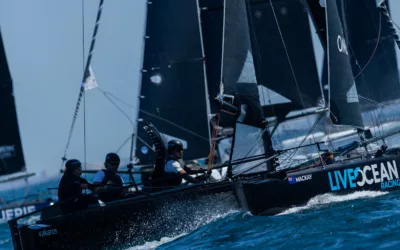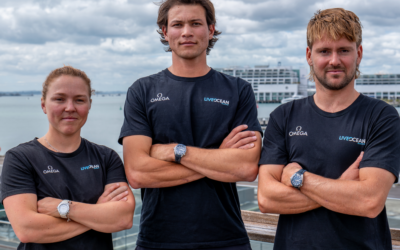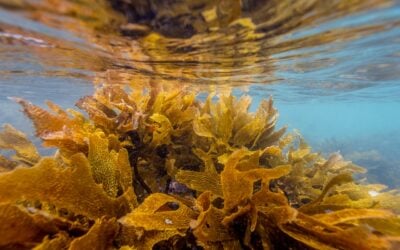11 February 2024
Globally significant research on kelp’s potential in the blue carbon context is happening here in Aotearoa New Zealand.
Dr Caitlin Blain, an exceptional and promising marine scientist from the University of Auckland, is seeking answers on the role of kelp in carbon sequestration.
People around the world know that forests are carbon heroes, but there’s also a growing understanding that the ocean has a critical role to play in planetary health.
And it’s possible the ocean’s kelp forests have unrealized potential which could prove hugely valuable in the global push to reduce carbon in the earth’s atmosphere, but there’s a piece of the kelp puzzle that needs solving.
A kelp conundrum.
“Kelps play a vital role in a healthy marine ecosystem as both food and habitat for marine life. And while there’s some excitement globally about kelps’ ability to use carbon dioxide from the surrounding seawater and atmosphere for growth, very little is known about what happens to the carbon once it is released from the kelp,” says Dr Caitlin Blain.
“Our research so far has shown that only a small proportion of the carbon dioxide fixed through photosynthesis is stored in kelp forests. We know the majority of this carbon is being released back into the ocean, but what happens to it after that?”
“It’s this piece of the puzzle we want to solve… if we know the long-term fate of this released carbon, we’ll know the role of kelp forests in carbon sequestration which could reveal their full potential for climate change mitigation.”
Sally Paterson, Chief Executive of Live Ocean Foundation says supporting Dr Blain’s vital work is an example of the foundation’s ability to scale up the work of exceptional marine scientists working in New Zealand.
“Dr Caitlin Blain is one of a handful of scientists around the world working in this compelling area of kelp as a nature-based solution in the face of climate change. It’s this sort of knowledge that could really step-change the way the world sees these underwater forests and how we prioritise the protection and management of them.”
New Zealand has around 15,000km of coastline once home to vast kelp forests, yet much of it has been lost or is under threat, with different stressors impacting kelp forests in different areas. Marine heatwaves, overfishing and sedimentation are among the list of things known to be detrimentally impacting our important native kelp forests.
“Right now, the ‘blue carbon market’ is in its infancy, so if science is able to show the value of kelp in the blue carbon equation this could unlock much-needed investment in marine conservation and kelp restoration efforts,” adds Paterson.
Funding for Dr Caitlin Blain’s important work has been made possible through multiple Live Ocean Foundation supporters, including a significant contribution ($131K) directed to Live Ocean Foundation through the success of the New Zealand SailGP team in the SailGP Impact League.



